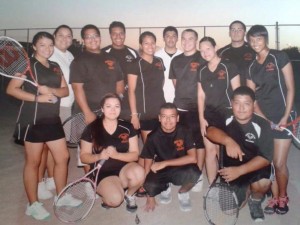Shayla Myers
Anna Crozes. “Recreational marijuana from a teacher’s perspective .” The Oregonian: Oregonlive.com. 28 Jul. 2015. Web. 28 Jul. 2015.

In Anna Crozes’ article, “Recreational marijuana from a teacher’s perspective,” found in an Oregonian Newspaper, she discusses the controversy of marijuana and the impact it has regarding her professional career as a teacher and her personal life as a citizen. This former high school teacher, current elementary teacher, speaks up as the voice for the public who oppose the legalization of recreational marijuana. Her main argument on marijuana is that is has become inconsistent with “personal freedom.” Anna defines this as what she personally believes is her right to enjoy public space without breathing in marijuana smoke. Therefore she believes recreational marijuana should be abolished in the state of Oregon. Through the use of rhetorical questioning and amplification, Anna effectively triggers her audience.
To inform her audience what side she’s on, she bluntly stated her position. “I didn’t vote for the legalization of this drug for recreational use” (Recreational Marijuana). Her remark sets the table to convince her readers that she has always had a negative outlook on marijuana. “…Give them an inch and they’ll take a mile” (Recreational Marijuana. For Anna, smokers take advantage of what’s handed to them. With the legalization of marijuana, she thinks it gives smokers a reason to do worse things than before.
Although marijuana was legalized, recreationally, to adults 21 years and older, its ease of access worries Anna. “…It breaks my heart the message this law has given to our youth” (Recreational Marijuana). Anna’s use of wording gives her audience a reason to feel empathy towards the children who are being affected by marijuana. By expressing how she feels for the kids shows how she is intentionally trying to persuade her readers that not liking marijuana is revolved around something greater than herself. Marijuana has become a factor amongst teens, and from Anna’s experience as a high school teacher, it’s not for the best.
Marijuana had been legalized in Oregon for about eight months when Anna Croze wrote this article. Since then, marijuana has become more and more relevant to her life in Portland, Oregon. “The word ‘public’ is defined in Webster’s as ‘relating to or affecting all the people or the whole area of a nation or state” (Recreational Marijuana). Stating the definition of the word public right at the beginning of her article immediately and purposely calls out those who smoke marijuana publicly. Anna’s article is nothing more than a plea to bring meaning towards personal freedom by addressing public smoker’s indefinite impact on those who surround them and a need for others, who are against marijuana, to take a stand.
Anna Croze, being the speaker of the article, defines her idea of public space with what she believes is her right to enjoy public space without breathing in marijuana smoke. This effects the article negatively because she only brings light from her own personal perspective, not an entire audience as a whole. This shows essentialization for Anna thinks her definition captures the most important qualities of human rights. Biased for her own definition, she disregards the smokers point of view on what rights they have and instead insist on her own. Her article needs to go over the definition of human rights. Human rights, regarding marijuana in this country is that we have a right not to smoke it. Her audience shouldn’t trust her opinion for her article is just as immature as the kids, she describes, are.



